The Top 10 Must-Have Plant-Based Foods For Optimal Health
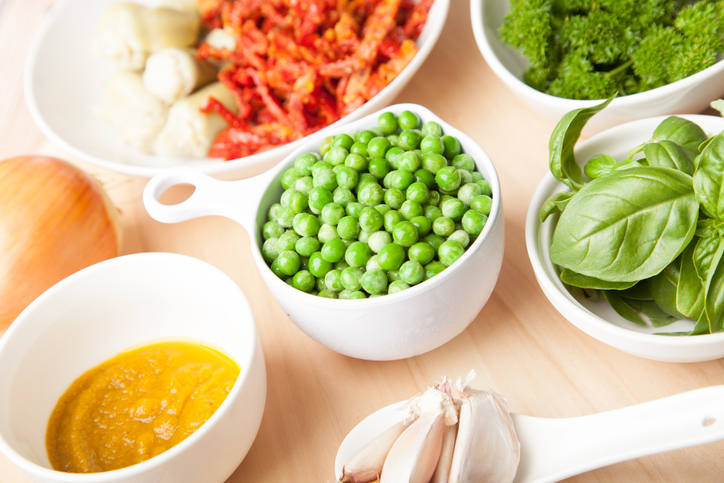
Introduction
Is it unnecessary to understand what plant-based foods are before even ranking them?
What are plant-based foods?
Plant-based diets have gained immense popularity recently, even in South Africa.
This popularity is due to their many health benefits.
Plant-based foods improve gut health.
They help in diabetes control by reducing inflammation and lower cholesterol levels. Plant-based foods are a powerful tool for achieving optimal well-being.
Are you looking to switch to a plant-based diet?
It will be hard to determine which plant-based foods to choose.
Fortunately, various plant-based foods are available that are healthy and delicious.
In this blog post, we’ll provide you with a list of the top 10 must-have plant-based foods for optimal Health.
These plant-based foods are essential for optimal health.
So, let’s look at the top 10 must-have plant-based foods for optimal health.
What Are Plant-Based Foods?
Plant-based foods primarily come from plants.
These are fruits and vegetables, legumes, whole grains, nuts and seeds, spices, and herbs. Plant-based foods boost nutrients, fibre, and antioxidants. These compounds make them essential for a healthy diet.
Fruits and vegetables are the foundation of a plant-based diet.
I can vouch for this fact. When I started eating fruits and vegetables, my weight dropped. And also, my energy increased.
Further, fruits and vegetables contain vitamins, minerals, and phytochemicals that promote health. These foods also reduce the risk of chronic diseases.
Berries, in particular, have high levels of antioxidants. These antioxidants protect the body against cellular damage and inflammation.
Legumes, such as beans, lentils, and chickpeas, are excellent plant-based protein sources. They also provide fibre and essential minerals. They are also low in fat and cholesterol, making them heart-healthy choices.
Whole grains, like quinoa, brown rice, and whole wheat bread, provide essential nutrients.
Nutrients like fibre, B vitamins, and minerals. They help maintain healthy digestion and regulate blood sugar levels.
Nuts and seeds are delicious and provide healthy fats, protein, and fibre. They are great for snacking, and you can add them to dishes to enhance taste and nutritional value.
Finally, consider spices and herbs to be part of these foods. Yet they are an integral part of a plant-based diet. They add flavour, aroma, and phytochemicals with antioxidant and anti-inflammatory properties.
Top 10 Must-Have Plant-Based Foods For Health
A plant-based diet is full of benefits for both your Health and the environment.
Your health and well-being will improve by eating more fruits and vegetables.
A plant-based diet has the potency to reduce the risk of chronic diseases.
Berries, like blueberries and strawberries, have high antioxidant content. Antioxidants give you protection against cellular damage and inflammation.
Eating fruits and vegetables helps lower blood pressure. Consuming them also reduces the risk of heart disease.
Besides the health benefits, a plant-based diet is more environmentally sustainable.
Eating fruits and vegetables is vital. Doing so can benefit your health and the planet.
So why not switch and enjoy the many rewards of a plant-based lifestyle?
How to Ensure a Balanced Plant-Based Diet
Ensuring a balanced plant-based diet is essential. Especially if you want to get all the nutrients, your body needs to thrive.
Here are some tips to help you achieve a well-rounded and nutritious plant-based diet
Include a Variety of Plant-Based Foods
Make sure to include a variety of fruits and vegetables.
Also include legumes, whole grains, nuts, and seeds in your meals. Plant-based foods provide many essential vitamins, minerals, and antioxidants.
Pay attention to Protein Sources.
Plant-based diets are rich in proteins. So, you must ensure you’re getting a variety of protein sources. Legumes, tofu, tempeh, seitan, and edamame are excellent options. These foods give all the essential amino acids your body needs.
Focus on Whole Grains
Brown rice, wheat bread, and oats must be in your diet instead of refined grains. Whole grains are higher in fibre, B vitamins, and minerals. These nutrients are essential for digestion and health.
Remember Healthy Foods
Include healthy fats in avocados, nuts, seeds, and olive oil in your meals. These fats provide essential nutrients and help keep you full and satisfied.
Stay Mindful of Nutrient Deficiencies
Nutrients like vitamin B12 and iron are hard to get from plant-based sources alone. Consider including fortified foods to meet your nutrient needs.
Following these guidelines ensures a balanced and nutritious plant-based diet.
When changing your diet, consult a dietitian or a nutritionist.
Top 10 Must-Have Plant-Based Foods
Are you ready to discover the top 10 must-have plant-based foods for a healthy diet? Look no further!
Let us explore the top 10 must-have plant-based foods for optimal health. Plant-based foods that are not only delicious but also nourishing.
We have compiled a list of the most nutrient-dense and delicious plant-based foods. Include these plant-based foods in your daily meal.
Leafy Greens
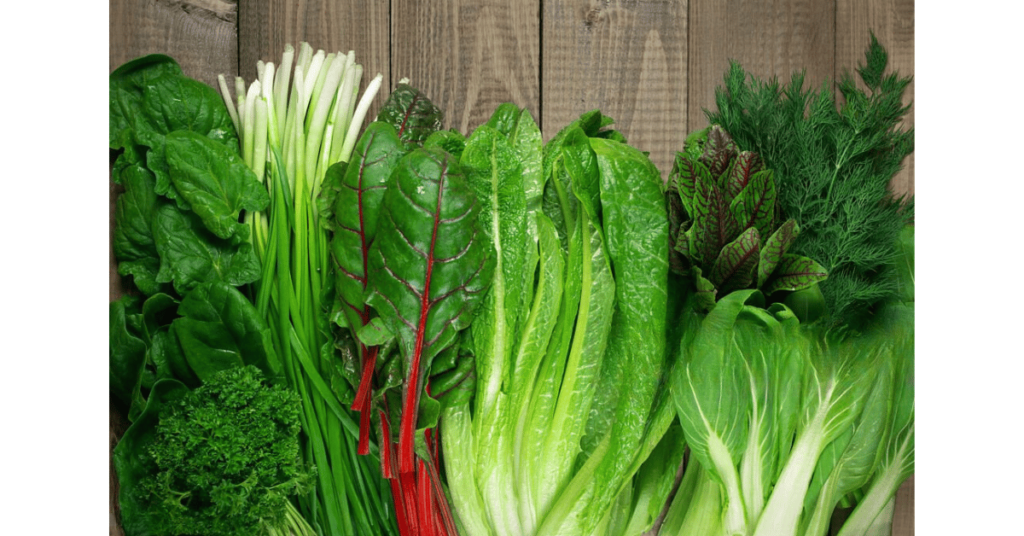
iStock/Sveti
Leafy greens like spinach, kale, and Swiss Chard give vitamins A, C, and K, as well as minerals like calcium and iron.
These nutritional powerhouses have low-calorie content and are high in antioxidants. These nutrients make leafy greens ideal for reducing inflammation. And also in supporting cardiovascular health.
Spinach is full of flavonoids and antioxidants. These compounds maintain vital brain function, memory, and mental clarity.
Kale is the top of its kind in healthy, leafy greens. It contains vitamins C, B6, K, potassium, calcium, magnesium, copper, and manganese.
The antioxidants found in kale are glucosinolates. Glucosinolates protect against cancer. Kale slows cognitive decline and age-related macular degeneration.
These powerhouse veggies are great for salads, smoothies, and stir-fries.
Berries
Berries are rich in antioxidants. Berries include blueberries, strawberries, and raspberries. Berries are not only sweet and tangy but also incredibly nutritious.
Blackberries are good sources of Vitamin C, K, E, folate and purple pigment anthocyanin, a flavonoid. These nutrients are essential in chronic disease prevention.
Vitamin C helps protein synthesis in your body.
These processes are vital for many body functions. Functions such as wound healing. Vitamin C also has antioxidant properties, helping in immune functioning.
Blackberries’ excellent Vitamin K source helps blood clotting. Blood clotting is essential for wound healing. They contain both soluble and insoluble fibre.
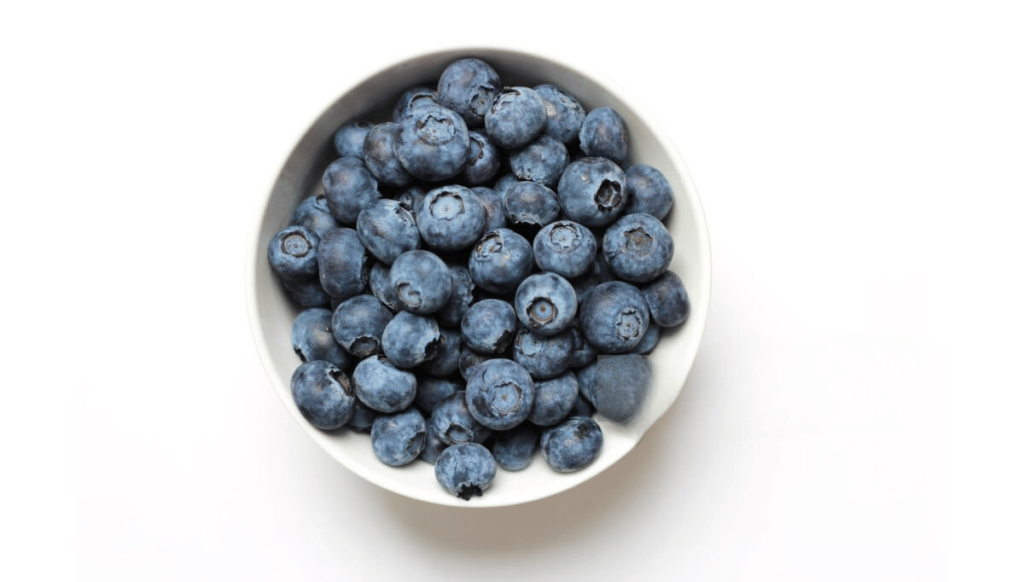
Studies have shown that blackberries can lower blood pressure. They also increase higher-density lipoprotein (HDL) cholesterol. They also slow blood-platelet function, meaning fewer blood clots. Blackberry extracts prevent liver damage and stop nonalcoholic fatty liver disease (NAFLD).
Blackberries work well in smoothies with other berries. Berries such as blueberries, raspberries, or apples.
Blueberries contain Vitamin C, K, Manganese, dietary fibre, phytonutrients, flavonoids, and resveratrol.
Blueberries have plenty of antioxidant content. Blueberries give anthocyanins and various phytonutrients.
Research indicates that blueberries lower cognitive decline. Blueberries also protect against heart disease and cancer. Blueberries help maintain bone strength, mental health, and healthy blood pressure. They also delay the ageing process by facilitating DNA repair.
What about a Blueberry Smoothie?
Mix frozen bananas, blueberries, peanut butter, and coconut water. Blend until smooth.
Raspberries contain vitamin C, manganese, copper, fibre, biotin, folate, and omega-3 fatty acids. They also give phosphorus, pantothenic acid, potassium, and bone-building Vitamin K.
Raspberries improve the management of obesity and fatty liver syndrome. This improvement occurs through their phytonutrients, especially rheosmin (raspberry ketone).
Scientists also show that ellagic acid prevents inflammation and cancer cells. Raspberries are also high in manganese, a mineral essential for strong bones.
Strawberries contain Vitamin C, folate, manganese, dietary fibre, flavonoids, and ellagitannins.
Anthocyanins, an antioxidant, may reduce cholesterol and insulin levels after a meal.
Ellagic acid found in strawberries has anticarcinogenic and antimutagenic activity. Strawberries also contain polyphenols. Polyphenols are beneficial compounds with antioxidant properties.
These phytochemical compounds inhibit tumour initiation.
It is vital for tissue repair as it is an excellent source of Vitamin C.
Add them to your morning oatmeal or yoghurt, or enjoy them as a refreshing snack.
Legumes: Nature’s Protein
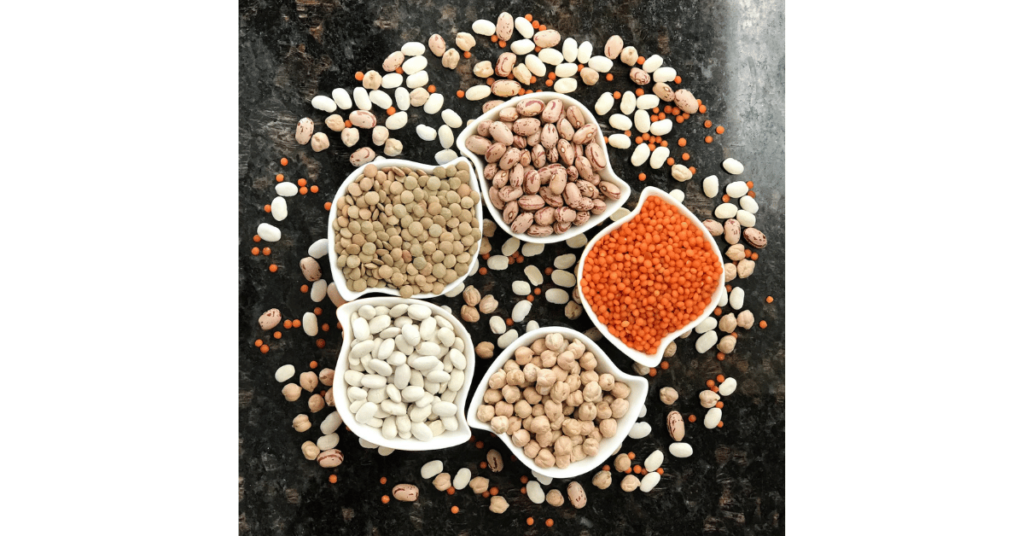
Unsplash/Suheil Burak
Excellent sources of plant-based protein are in beans, lentils, and chickpeas.
They have high fibre content.
The fibre helps regulate blood sugar levels. It also promotes a healthy gut microbiome.
Legumes are versatile. You can include them in various dishes, making them a staple in any plant-based diet.
Phytonutrients in beans, such as diosgenin, inhibit cancer cells from multiplying.
Garbanzo beans have seventy per cent soluble and insoluble fibre. They are thus undigested. The undigested fibre helps colon health. Chickpeas contain the powerful antioxidant mineral selenium.
Green Peas form a complete protein when combined with grains. Green Peas contain vitamins A, K, and C.
Green peas contain fibre, minerals, protein, B-complex vitamins and phytonutrients.
Vitamin K in green peas helps put calcium in the bones.
Green peas have phytonutrients, such as phenolic acid, flavonoids, and carotenoids. These phytonutrients help protect cells from oxidative damage and inflammation. They also help in the prevention of type 2 diabetes and cardiovascular disease.
Lutein in peas helps preserve eyesight.
Lentils are high in iron and minerals and rank third in protein power among beans and legumes. They follow soybeans and hemp.
But, they are deficient in calories. Lentils contain dietary fibre, folate, thiamine, pyridoxine, pantothenic acid, niacin, riboflavin, and manganese. They also give phosphorus, iron, copper, potassium, magnesium, and zinc. They boost phytonutrients, phenolic acids, flavonoids, and phytosterols.
Iron and vitamin B1 in lentils help maintain a steady heartbeat and prevent anaemia. B vitamins act as anticancer agents, protecting you against cancer.
Potassium and manganese regulate blood pressure, and niacin (Vitamin B3) boosts cardiovascular Health.
Using legumes can result in soups, stews, salads, or even delicious plant-based burgers.
Whole Grains: Fibre-rich Goodness
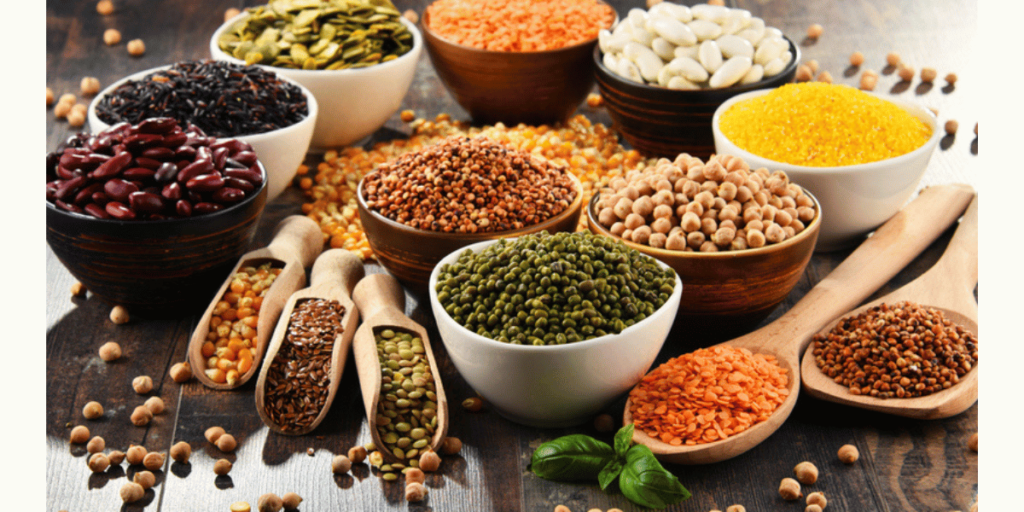
Whole grains like brown rice, oats, and whole wheat are excellent sources of fibre. Fibre aids digestion and promotes a feeling of fullness.
Whole grains have a low glycemic index. This level of glycemic index makes them suitable for managing blood sugar levels. They also give essential vitamins and minerals for overall health.
Nuts and Seeds
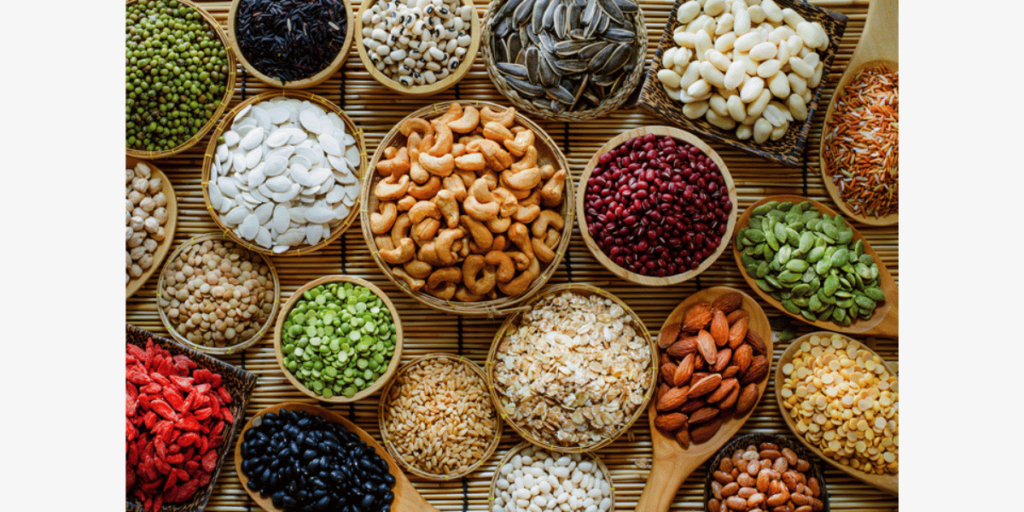
Excellent sources of healthy fats and plant-based protein are almonds, walnuts, chia seeds, and flaxseeds.
They contain omega-3 fatty acids. These fatty acids help reduce inflammation. Omega-3 fatty acids also support heart health.
These plant-based foods can also help in maintaining healthy cholesterol levels.
Avocados: Heart-Healthy Good Fats
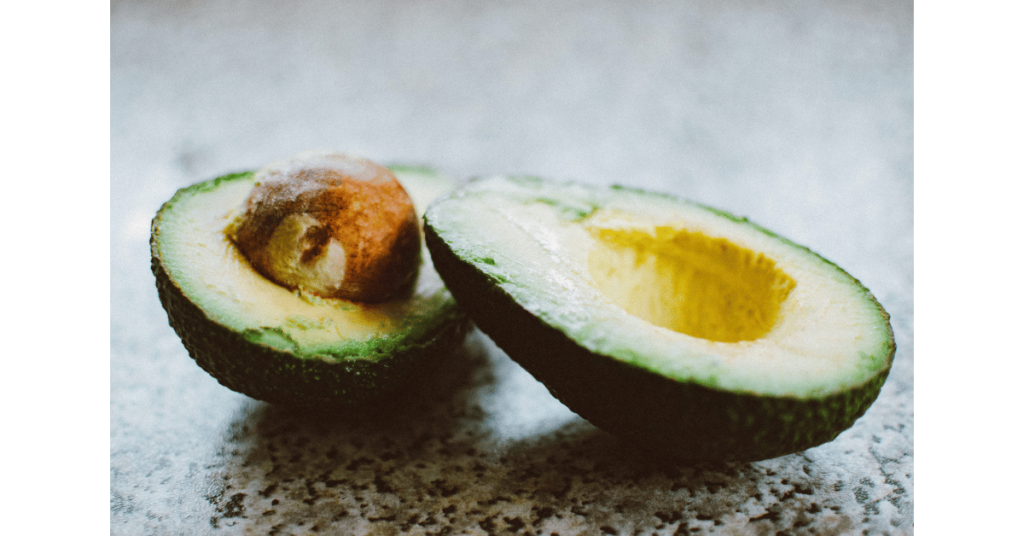
Pexels/Lisa Fotios
Avocado is a unique fruit. A fruit rich in monounsaturated fats. Monounsaturated fats are heart-healthy fats that help lower bad cholesterol levels.
Avocados are a good source of potassium. Potassium supports healthy blood pressure.
You can use avocado in salads, sandwiches, and spreads. Avocados add a creamy texture and nutritional boost to your meal.
Tofu
This versatile plant-based protein is suitable for stir-fries and curries. You can male scramble tofu to resemble eggs. It is an excellent source of protein and provides essential amino acids.
Tubers: Nutrient-Dense
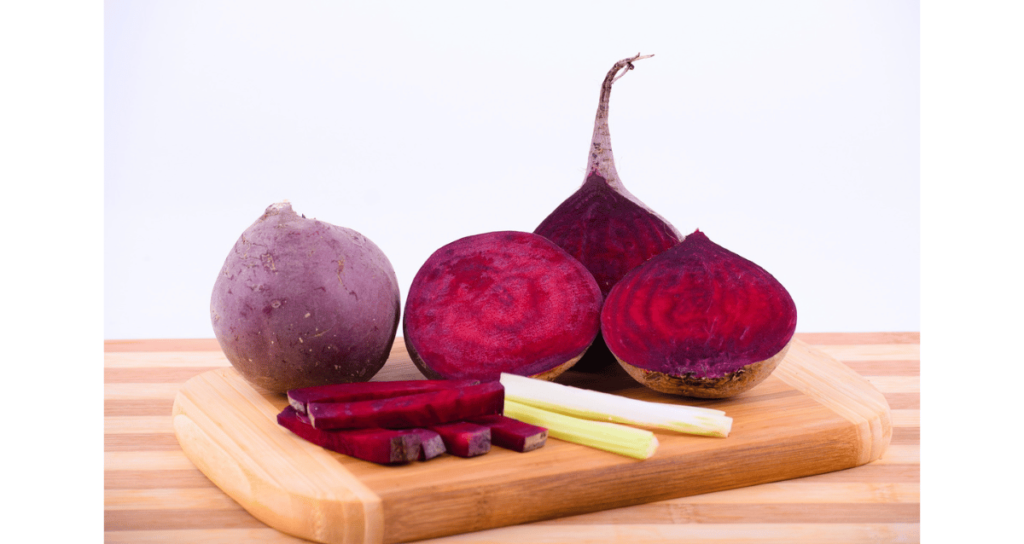
Root vegetables are nutrient-dense tubers. These vegetables provide minerals, vitamins, and fibre.
Sweet potatoes are rich in beta-carotene. Beta-carotene is beneficial for eye health and immune function.
You can use these versatile vegetables in various dishes, adding flavour and nutrition.
Cruciferous Vegetables: Cancer-Fighting Foods
These nutrient-dense cruciferous vegetables comprise broccoli, cauliflower, and Brussels sprouts. Cruciferous vegetables are rich in vitamins, fibre, and antioxidants that support health.
Cruciferous vegetables have cancer-fighting properties.
They contain sulforaphane. Sulforaphane is a compound shown to have anticancer effects.
Additionally, these vegetables are high in fibre, vitamins, and minerals. These nutrients make cruciferous vegetables essential for health and well-being.
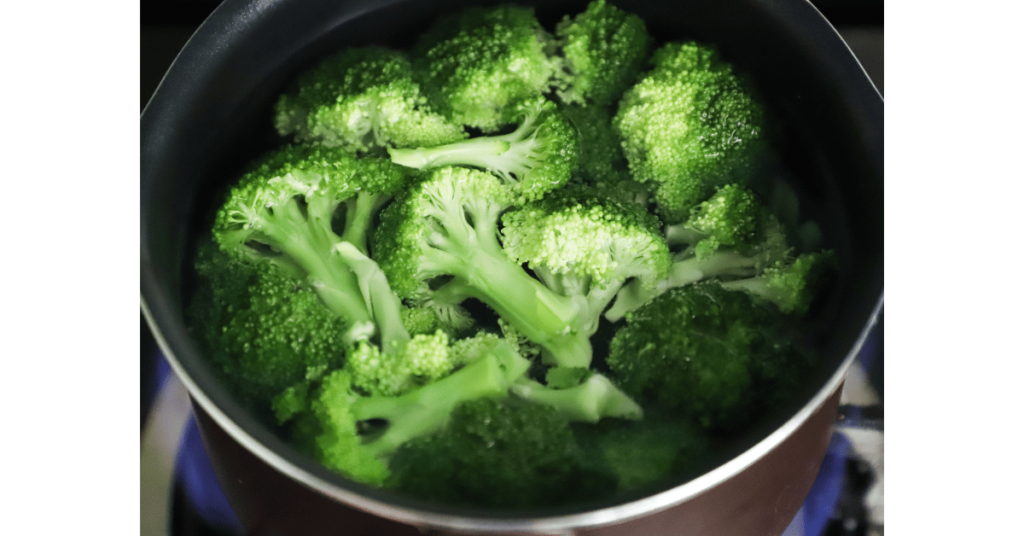
Broccoli is the most nutrient-dense food in the world. It contains vitamins C, K, and B vitamins, folate, potassium, iron, manganese, magnesium, phosphorus, and selenium. It also includes a variety of phytonutrients. Phytonutrients include carotenoids, flavonoids, glucosinolates, phenolic acids, and lignans.
Broccoli is my favourite, especially when mixed with mushrooms.
Roast them, steam them, or add them to your stir-fries.
Quinoa: The Complete Protein
Quinoa is a nutrient powerhouse that stands out due to its complete protein profile.
Quinoa provides all nine essential amino acids. Consuming quinoa helps in muscle repair and growth.
Quinoa gives fibre, iron, magnesium, and manganese. These nutrients promote gut health and well-being.
How to Incorporate More Plant-Based Foods Into Your Diet
Deciding to transition to a plant-based diet may initially seem daunting. But, with the right strategies and mindset, you can make this shift. Thus enjoying the benefits of a plant-based lifestyle. Here are some practical tips. Tips to help you include more plant-based foods into your diet:
Start with Small Steps
Replace one meal daily with a plant-based option.
It can be a veggie stir-fry, a lentil soup, or a colourful salad. As you become more comfortable, gradually increase the number of plant-based meals.
- Experiment with Different Recipes: Explore plant-based recipes and try out new dishes. Get creative in the kitchen and try cooking with other grains, legumes, and vegetables. Experimenting will help you to discover new flavours. And you’ll make your plant-based meals more exciting.
- Make vegetables the star of your plate: Build your meals around vegetables rather than using meat or dairy products. Fill half your plate with rainbow vegetables. Then, complement them with whole grains, legumes, and healthy fats.
- Find plant-based substitutes: Explore alternatives to your favourite animal-based products. Use almond or coconut milk, and refrain from using dairy milk. Choose tofu or tempeh instead of meat, and use nutritional yeast as a cheesy seasoning.
- Stock up on plant-based staples: Ensure your pantry has all essential ingredients, including all plant-based foods. These readily available items will make incorporating them into your meals easier.
- Plan your meals: Take some time to plan your meals and create a weekly grocery list. Meal planning will keep you on track and ensure you have all the necessary ingredients. Meal planning can save time and prevent you from reaching for unhealthy options.
- Be open-minded and willing to try new things: Approach your plant-based journey with an open mind. Embrace the opportunity to try fresh foods. Explore different flavours, cuisines, and cooking methods. Make your plant-based diet more enjoyable.
Conclusion
Add these ten plant-based foods to your diet and improve your health and vitality.
Are you aiming to improve your gut health or manage diabetes? Do you want to reduce inflammation and lower cholesterol levels? These nutrient-packed foods provide a delicious and sustainable way to support your well-being.
Embrace the power of plant-based eating and embark on a journey towards optimal health.

1 thought on “The Top 10 Must-Have Plant-Based Foods For Optimal Health”